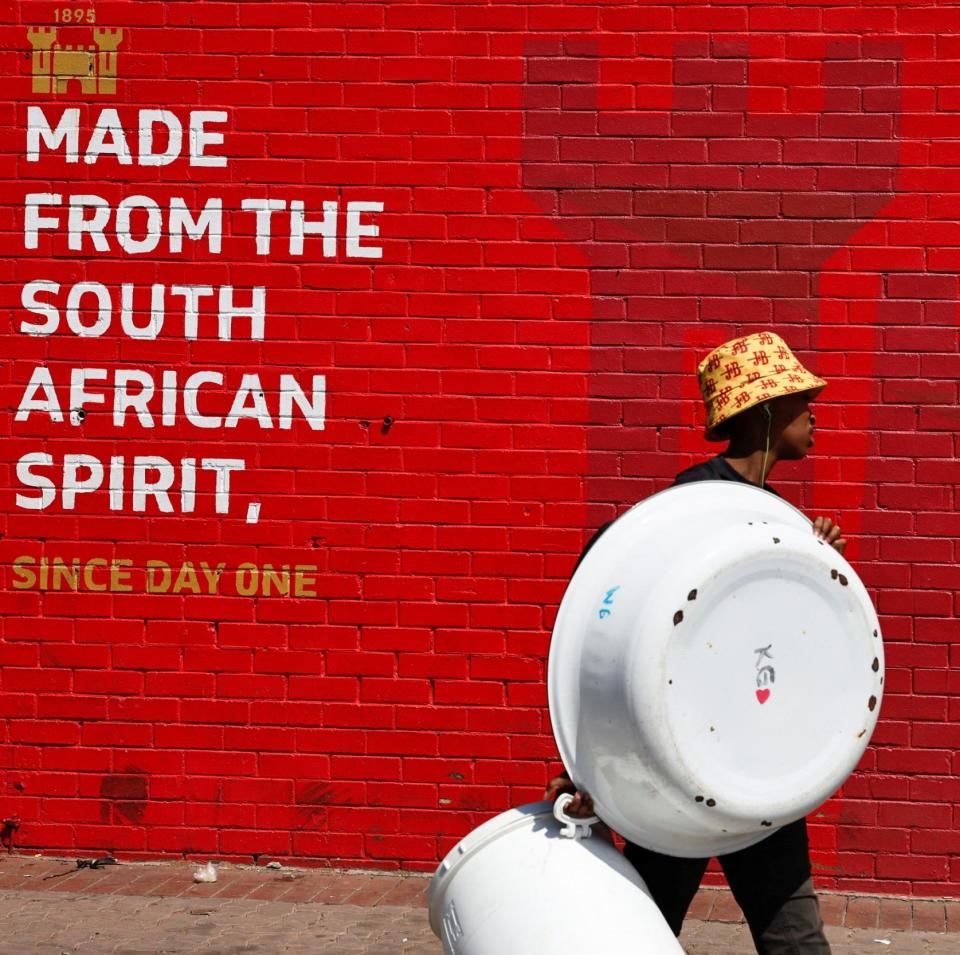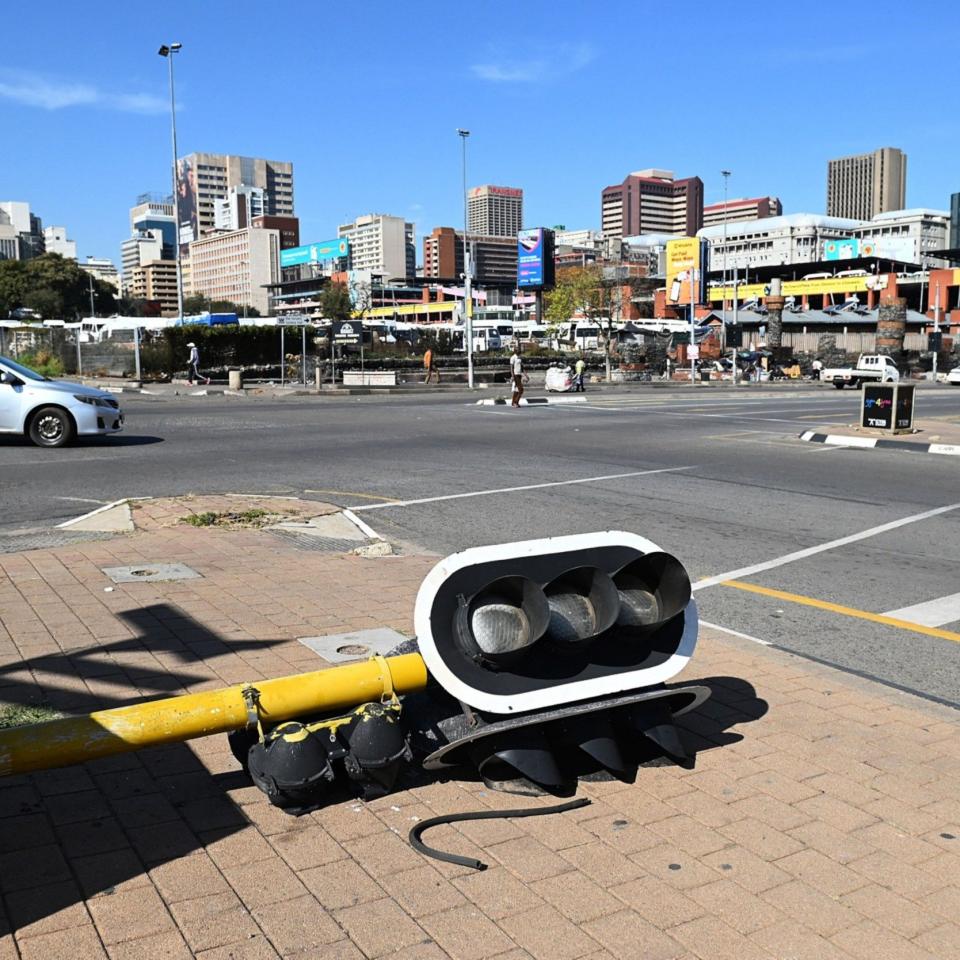From the outside, Johannesburg does not appear to be doing well.
Roads full of holes. Broken traffic lights without repair for months. Garbage rotting in the streets.
But from within, the scale of the problems facing South Africa’s largest city and the continent’s wealthiest and most industrialized is even worse.
From taps regularly running dry to four-hour power cuts every day – known locally as load shedding – life has taken a turn for the worse for many people in Jo’burg.
The decline in the southern suburb of Forest Hills is a case in point.
Previously dominated by poorer whites, in recent years it has become more mixed as blacks seek to move out of the city’s apartheid-era townships.
“Although they were never rich, at least things worked [around here],” Stuart Marais, a long-time resident and local city councillor, told the Telegraph.
“Traffic signs are regularly vandalized and not repaired within six to eight months. Grass is growing into our roads that have not been fixed for years,” said the 63-year-old.


“Wrecked cars litter around and many residents put their rubbish out on the streets and it just sits there rotting.”
It was “far too dangerous” to walk around at night, he said. “The decline in this part of Johannesburg is huge.”
Mr Marais says the blame lies with the municipality, where the African National Congress has the largest number of seats.
He said support for his party, the Democratic Alliance – the main opposition to the ANC, has “definitely been growing in Johannesburg” since the last national elections in 2019, which he attributed in part to the chaotic situation in the city.
Coupled with long-standing anger over corruption, poverty and unemployment, such grievances with the ANC will have a seismic effect on the country’s political landscape when the country goes to the polls again on May 29.
Surveys suggest the party will lose its majority for the first time since the late Nelson Mandela brought it to power in 1994 after the fall of apartheid.
If that happens, it will be a huge moment for South Africa.
Although the ANC would easily be the largest in parliament, it would be a symbolic change that speaks to the level of frustration with a party that was supposed to lift South Africa’s black majority out of poverty.
The woes facing most of Johannesburg’s nearly six million residents show just how badly they are failing.
The city is the engine of South Africa’s economy, with luxury shops, world-class sports venues, an international airport and world-class hospitals. In the year 2000, it was described as a “world class African city”.
But the legacy of apartheid remains.
The legacy of apartheid
Much work has been done to improve Soweto, South Africa’s largest township, but predominantly black areas in eastern Johannesburg remain neglected.
Outside the towns, there has been an explosion of informal shelters in the center of “old” Johannesburg where illegal immigrants live in overcrowded, dirty conditions with no official running water or electricity supply.
Parts of the city are no-go zones and fatal accidents are common. Last year, a fire broke out inside a building that was being squatted, killing at least 77 people.
Even in typical middle-class neighborhoods, public areas are unkempt, sidewalks are crumbling and trees are growing out of some storm drains.
“We are concerned that the anger and frustration of the residents will lead to violent protests if something is not done now,” said Neeshan Bolton, who chairs the Johannesburg Crisis Alliance.
The Alliance was formed last year to try to solve some of the problems facing the city.
It is made up of local residents, including infrastructure experts and business owners, who say the situation is so desperate that they are offering their services for free.
“We wrote to President Cyril Ramaphosa last year and told him that residents, workers and businesses were facing potholed streets, leaking water pipes, overflowing sewers, malfunctioning traffic lights and lawlessness,” he said .
“We also told him that daily electricity cuts were leaving businesses idle for hours, disrupting daily life and forcing residents to rely on ingenuity to manage the chaos. This is still going on now, nothing has changed.”
But Mr Bolton said Africa’s richest city had been plagued by “massive” disinvestment which had contributed to unemployment and made the streets unsafe.


The “dysfunction in the city is rooted in unstable political coalitions within the municipalities and neglectful maintenance.”
Mr Ramaphosa has not yet responded to the organisation’s letter, he said, “but we are moving forward and we are making a difference, at least in some areas of the city.”
The scale of Johannesburg’s problems has recently been highlighted by water shortages affecting both rich and poor parts of the city.
Every day at least a quarter of Johannesburg’s supply is lost through leakage, according to reports.
The sprawling city has more than 7,000 miles of underground water pipes, some of which are more than 70 years old, and most need to be replaced. Only a third of the annual pipe replacement target is met.
Including water theft and a free monthly allowance of 6,000 liters for each family, only about half of the city’s supply is paid for.
Ferrial Adam, a prominent environmental activist, said this meant there was a huge shortage of funds available to maintain infrastructure.
“More than half of the budget goes to contractors, another third to staff, and very little to actual maintenance, and some of that is mismanaged.
“We didn’t do enough maintenance for the last 10 years and now so much is falling apart.”